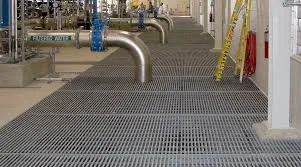
-
 Afrikaans
Afrikaans -
 Albanian
Albanian -
 Amharic
Amharic -
 Arabic
Arabic -
 Armenian
Armenian -
 Azerbaijani
Azerbaijani -
 Basque
Basque -
 Belarusian
Belarusian -
 Bengali
Bengali -
 Bosnian
Bosnian -
 Bulgarian
Bulgarian -
 Catalan
Catalan -
 Cebuano
Cebuano -
 China
China -
 China (Taiwan)
China (Taiwan) -
 Corsican
Corsican -
 Croatian
Croatian -
 Czech
Czech -
 Danish
Danish -
 Dutch
Dutch -
 English
English -
 Esperanto
Esperanto -
 Estonian
Estonian -
 Finnish
Finnish -
 French
French -
 Frisian
Frisian -
 Galician
Galician -
 Georgian
Georgian -
 German
German -
 Greek
Greek -
 Gujarati
Gujarati -
 Haitian Creole
Haitian Creole -
 hausa
hausa -
 hawaiian
hawaiian -
 Hebrew
Hebrew -
 Hindi
Hindi -
 Miao
Miao -
 Hungarian
Hungarian -
 Icelandic
Icelandic -
 igbo
igbo -
 Indonesian
Indonesian -
 irish
irish -
 Italian
Italian -
 Japanese
Japanese -
 Javanese
Javanese -
 Kannada
Kannada -
 kazakh
kazakh -
 Khmer
Khmer -
 Rwandese
Rwandese -
 Korean
Korean -
 Kurdish
Kurdish -
 Kyrgyz
Kyrgyz -
 Lao
Lao -
 Latin
Latin -
 Latvian
Latvian -
 Lithuanian
Lithuanian -
 Luxembourgish
Luxembourgish -
 Macedonian
Macedonian -
 Malgashi
Malgashi -
 Malay
Malay -
 Malayalam
Malayalam -
 Maltese
Maltese -
 Maori
Maori -
 Marathi
Marathi -
 Mongolian
Mongolian -
 Myanmar
Myanmar -
 Nepali
Nepali -
 Norwegian
Norwegian -
 Norwegian
Norwegian -
 Occitan
Occitan -
 Pashto
Pashto -
 Persian
Persian -
 Polish
Polish -
 Portuguese
Portuguese -
 Punjabi
Punjabi -
 Romanian
Romanian -
 Russian
Russian -
 Samoan
Samoan -
 Scottish Gaelic
Scottish Gaelic -
 Serbian
Serbian -
 Sesotho
Sesotho -
 Shona
Shona -
 Sindhi
Sindhi -
 Sinhala
Sinhala -
 Slovak
Slovak -
 Slovenian
Slovenian -
 Somali
Somali -
 Spanish
Spanish -
 Sundanese
Sundanese -
 Swahili
Swahili -
 Swedish
Swedish -
 Tagalog
Tagalog -
 Tajik
Tajik -
 Tamil
Tamil -
 Tatar
Tatar -
 Telugu
Telugu -
 Thai
Thai -
 Turkish
Turkish -
 Turkmen
Turkmen -
 Ukrainian
Ukrainian -
 Urdu
Urdu -
 Uighur
Uighur -
 Uzbek
Uzbek -
 Vietnamese
Vietnamese -
 Welsh
Welsh -
 Bantu
Bantu -
 Yiddish
Yiddish -
 Yoruba
Yoruba -
 Zulu
Zulu
fiberglass winding machine
The Importance of Fiberglass Winding Machines in Modern Manufacturing
In recent years, the manufacturing industry has seen a significant shift towards utilizing advanced materials to improve the performance and longevity of products. Among these materials, fiberglass has emerged as one of the most sought-after due to its unique properties such as strength, durability, and resistance to corrosion and chemicals. One of the critical processes in the production of fiberglass components is the use of fiberglass winding machines. These machines have revolutionized the way industries create high-performance products, enabling manufacturers to enhance efficiency, reduce waste, and maintain consistency in production.
How Fiberglass Winding Machines Work
Fiberglass winding machines utilize a process known as filament winding. This process involves the application of continuous strands of fiberglass roving that are saturated with resin to form a composite material. The machine is programmed to spin a mandrel, around which the fiberglass strands are wound in precise patterns dictated by computer algorithms. This method allows for the creation of complex shapes and structures, making it ideal for producing strong and lightweight components for various applications, including pipes, tanks, aerospace parts, and automotive components.
The key components of a fiberglass winding machine include the mandrel, winding head, resin distribution system, and control panel. The mandrel serves as the core onto which fiberglass filaments are wound, forming the final product upon curing. The winding head is responsible for the precise placement of fiberglass strands at various angles, optimizing the overall strength and performance of the finished piece. The resin distribution system ensures that the fiberglass is adequately impregnated with resin before being applied, while the control panel allows operators to program specific winding patterns and monitor the entire process.
Applications Across Various Industries
Fiberglass winding machines have found extensive applications in several industries due to the versatility of the material. In the construction sector, they are employed to create durable piping systems and storage tanks that can withstand extreme environmental conditions. The automotive industry benefits from the lightweight and high-strength properties of fiberglass, resulting in improved fuel efficiency and performance in vehicles. Moreover, in the aerospace field, fiberglass components manufactured using winding machines contribute to the reduction of overall aircraft weight, enhancing fuel efficiency and performance.
fiberglass winding machine

Additionally, the electrical industry uses specialized fiberglass winding machines for the production of electrical insulators and components. These insulators are crucial for ensuring safety and efficiency in electrical systems. The capability of fiberglass to withstand high temperatures and electrical loads makes it an indispensable material in this sector.
Advantages of Using Fiberglass Winding Machines
The adoption of fiberglass winding machines yields numerous advantages for manufacturers. One of the primary benefits is the increased production efficiency. By automating the winding process, these machines significantly reduce the man-hours required for production while also improving the accuracy of the winding patterns.
Another advantage is the reduction of material waste. Traditional methods of fiberglass production often lead to excess material being scrapped. However, with a winding machine’s precise control over the resin application and fiberglass placement, manufacturers can optimize material usage, which ultimately leads to lower production costs.
Furthermore, fiberglass winding machines ensure consistency in product quality. Since the process is highly automated, the chances of human error are minimized, resulting in uniformity in the finished products. This consistency is essential for meeting industry standards and customer expectations, especially in sectors with stringent quality requirements.
Conclusion
In conclusion, fiberglass winding machines play a pivotal role in modern manufacturing by enhancing the efficiency, quality, and sustainability of fiberglass products across various industries. As technology continues to advance, these machines are expected to evolve further, offering even greater precision and capabilities. The ongoing demand for high-performance, durable materials ensures that fiberglass winding machines will remain an integral part of the manufacturing landscape, driving innovation and competitiveness in the market. As industries embrace these advancements, the future looks promising for fiberglass applications, solidifying the importance of fiberglass winding machines in meeting the evolving demands of various sectors.









